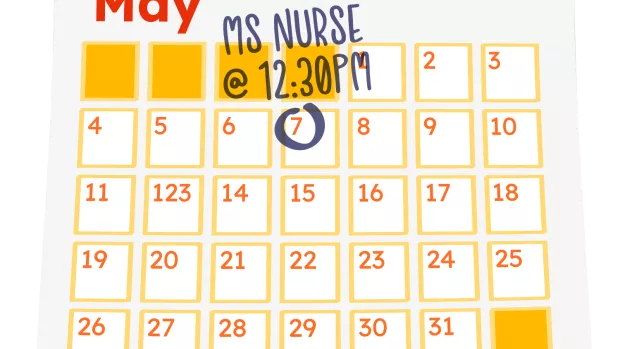
Medical gaslighting and MS
We spoke to Professor Gavin Giovannoni, consultant neurologist and researcher at Queen Mary University of London, about his research into ‘medical gaslighting’.
What is medical gaslighting?
It’s when a healthcare professional dismisses someone’s symptoms or concerns, or writes them off as normal or not relevant, without explanation. Many people with long-term health conditions report they’ve experienced medical gaslighting.
In relation to MS, it might mean someone is told by a medical professional their condition is stable based on MRI results. But the person is still experiencing worsening or progression, like changes in their bladder function or their walking getting worse.
Why does medical gaslighting happen?
Medical gaslighting isn’t unique to MS. We see it across different services. I don’t think it’s something that doctors and other healthcare professionals consciously set out to do. I think ultimately it comes down to time. We get very little time with each patient. We might see them for a short annual check-up appointment, which makes it difficult to share detailed information and answer questions thoroughly.
Our healthcare system deals very well with acute problems, like someone coming into A&E with a broken arm. But when it comes to long-term conditions like MS, symptoms are often hidden. And there might not be suitable drugs available. This can make it harder to give people a definitive answer.
Can you tell us about your research into medical gaslighting?
I run a newsletter website called MS-Selfie, which aims to empower people with MS to learn more about their condition. And to help them self-manage their condition. I ran a survey on the website to ask people with MS about their experiences with medical gaslighting. In seven days I got over 400 responses.
88% of people reported having experienced medical gaslighting in the past, with about half experiencing it frequently.
Women with MS were more commonly affected. This didn’t surprise me. Research in other conditions has shown that medical gaslighting overwhelmingly affects women – particularly those from minoritised ethnic backgrounds.
It also seemed to be particularly common before diagnosis. MS is difficult to diagnose, and symptoms can vary from person to person. This may mean it’s easier for doctors to dismiss symptoms as another, less serious condition.
How can we tackle medical gaslighting?
We need more research into medical gaslighting and MS to help us understand the true extent of the problem and how to stop it. We also need to educate doctors in training about the issue. This will help them examine their own biases and make sure their medical judgement isn’t impacted.
I also think being able to advocate for yourself is vital. I recommend people prepare themselves for appointments with a healthcare professional. Bring a set of questions you want to know the answers to. If there’s someone you trust, you could take them with you. They can take notes to keep track of which questions have been answered and what the suggested next steps are. If people feel they aren’t being listened to during a consultation, they can ask for a second opinion from a different neurologist.
I want people with MS to be empowered to understand their condition and make informed decisions with the guidance of healthcare professionals.
Rather than the more traditional, patriarchal version of medicine.
Online resources, like the MS Society website and my MS-Selfie website, can help you learn more about your condition and prepare for these conversations. And support groups can be a valuable resource to learn from other people with MS.
Visit Gavin's MS-Selfie website
Our MS Helpline gives emotional support and information to anyone living with or affected by MS. Get in touch on 0808 800 8000 or [email protected]



